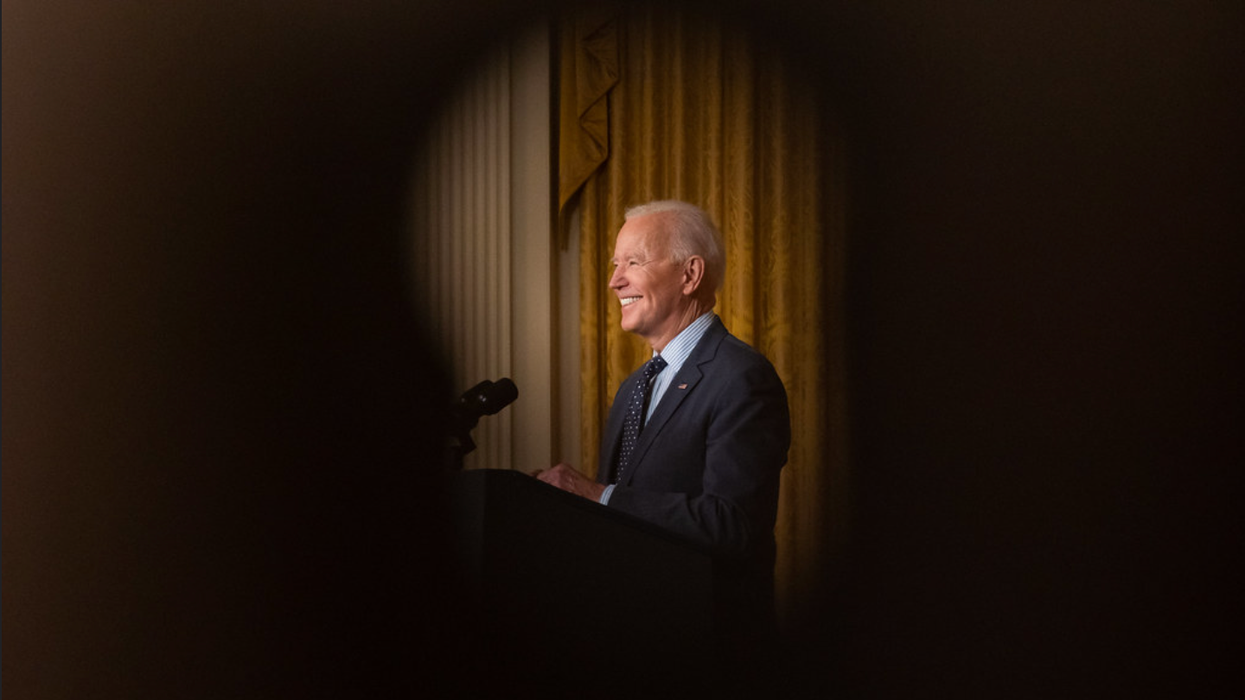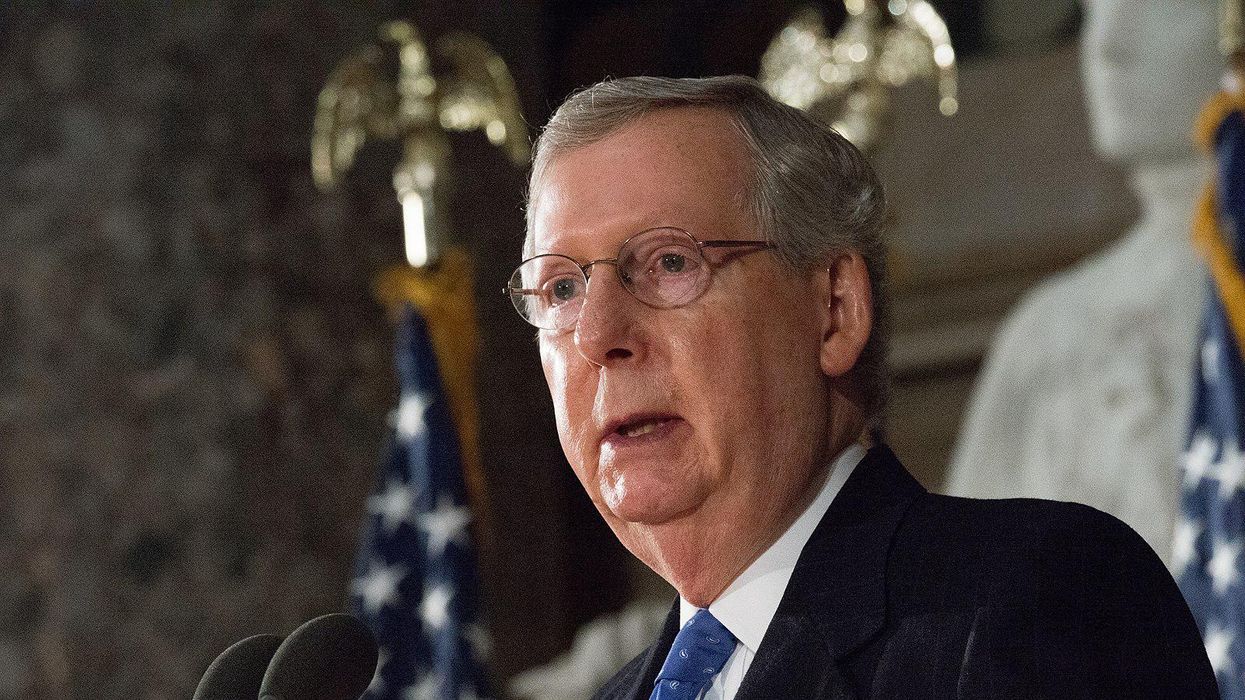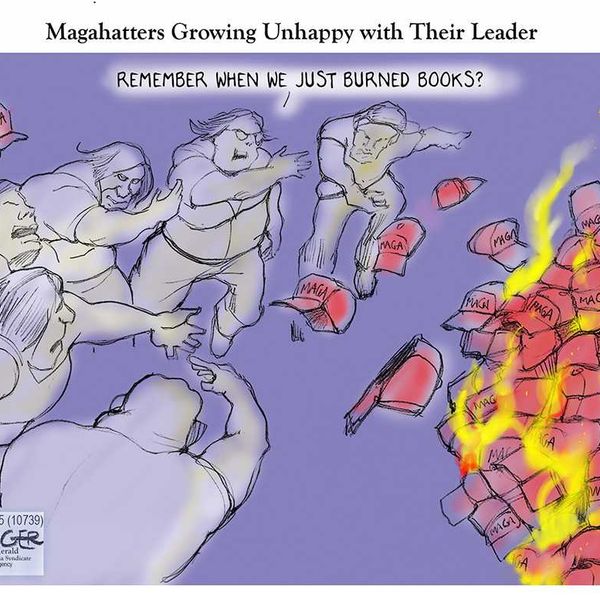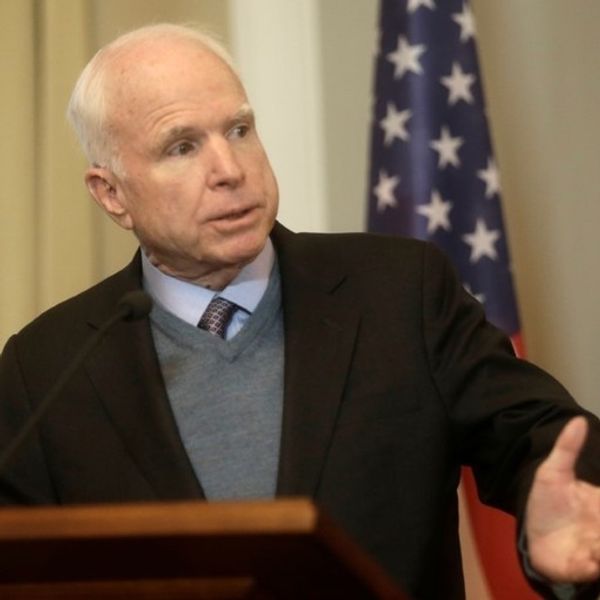'Flubs And Blunders': Beltway Press Desperately Stirs Controversy Around Biden
Reprinted with permission from Press Run
It was the kerfuffle that fizzled.
Anxious for some tension to jolt the No Drama Biden era, and missing the nonstop, frantic news cycles of the Trump years, the Beltway media just spent a week in hyperventilation mode. In the end, the story they desperately wanted to push — bipartisan negotiations for the proposed infrastructure bill were unraveling thanks to a Biden "blunder" — went nowhere, and the press once again revealed how it chases over-hyped Democratic White House controversy instead of straight news.
The overheated media excitement for a ho-hum story was the latest proof that the press, five months into Biden's term, is still struggling to adjust from the Trump era tumult. With clicks and views down this year and more news consumers embracing the return to news cycle 'normalcy' under Biden's steady, non-psychotic hand, reporters, editors, and producers are leaning into any attempt to create headlines and conflict.
It also marks the return to process journalism, which Beltway reporters love, as they focus on the theatrics of lawmaking, often at the expense of the substance.
For the infrastructure story, the Washington Post excitedly announced that Biden "flubbed" the "rocky rollout" of the preliminary bipartisan deal that had been struck in the Senate when he said he wouldn't sign it unless a simultaneous and larger bill favored by Democrats didn't land on his desk. "If they don't come, I'm not signing," Biden said. "Real simple."
Republicans immediately launched into outrage mode, insisting the president had blind-sided them with a new demand. (Fact: He had discussed it for months.) And when the GOP goes into outrage mode, the press quickly falls in line, loudly amplifying the claims of foul play, along with lots of coverage about how Biden supposedly messed up the Democrat's legislative agenda.
"White House Scrambles to Manage Fallout of Biden's 'Tandem' Remarks" Politico announced. Bloomberg dubbed it his "blunder," followed by this from Financial Times: "Biden Seeks Support for Infrastructure Deal After Bungled Rollout." At CNN, they breathlessly claimed Biden's comments had set off a "48-hours chaos" cycle inside the Beltway, and "exposed Biden's continued ability to throw his agenda for a loop with a few misplaced words." (Gaffes!)
What's actually in the infrastructure bill? That was of less interest to most news outlets, as they myopically focused on the process and would-be horse trading that was underway on Capitol Hill. That included insomnia-inducing bouts of process questions during White House press briefings, as reporters asked the same question over and over about Biden's comment and whether he'd sign the bipartisan bill without the Democratic one.
All of it was driven by Republican posturing and the mainstream media's public assumption that they were acting as honest brokers. "The tantrum clearly wasn't rooted in good faith," noted MSNBC's Steve Benen. "And yet, much of the political world went along with the theatrics anyway, as if there was some degree of sincerity in Republican complaints about Biden and Democratic leaders having gone too far."
Added the Post's Jennifer Rubin: "The Republicans routinely play the mainstream media, which indulges them by creating controversy. "Biden may have blown it" banter filled the cable TV shows. Instead of closely examining whether Republicans' outburst was illogical, and pointing out that any threats were empty, they ran with the story for days."
It was hard to watch the cringe-worthy coverage and not think a lot of it was driven by a media desire to gin up controversy for an extremely uncontroversial president. With the nation no longer locked into Trump news cycles that horrified millions of voters, demanded attention, and sparked genuine outrage, there's a temptation now to widely overplay middling stories.
On Wednesday Reuters hyped the results of its latest presidential polling and presented the results as sweepingly bad for Biden. "Support For Biden Erodes Among Democrats," read the headline. Yet the piece noted that Biden today is nearly 20 points more popular than Trump was at this juncture of his presidency. That's one of the biggest polling jumps in modern American history.
This approach to Biden coverage isn't new. Back in May, the press pushed the strange narrative that the Biden White House was being overrun by "a flurry of crises" that threatened to stymie the new, popular president. The administration was "struggling to find a clear narrative." "Multiple Crises at Home and Abroad Provide a Reality Check for Biden's White House," a CNN headline declared, while NBC's Meet the Press announced, "Biden Battles New Crises as Honeymoon Fades." And from The Hill: "The Imminent Crises Facing Joe Biden."
But journalists often strained themselves trying to construct the new narrative. In an effort to paint the picture of mounting "crises," several pointed to the already-fixed Colonial Pipeline shutdown from the previous week as proof Biden was facing "new" calamities.
This followed a silly March media outburst of gotcha stories: Biden travels during the pandemic! Biden rides an expensive exercise bike! Biden wears a Rolex! Biden hasn't given a press conference! Biden hasn't credited Trump for the vaccine! Biden hasn't "united" the nation!
Not only were the attacks dopey, but they lacked all context. Biden's predecessor waged war on free and fair elections during his final months in office and inspired a deadly attack on the U.S. Capitol. Yet the press spent days treating a stray, misdirected Biden sentence regarding infrastructure negotiations as "chaos"?
The press really struggles with the new drama-free White House.












